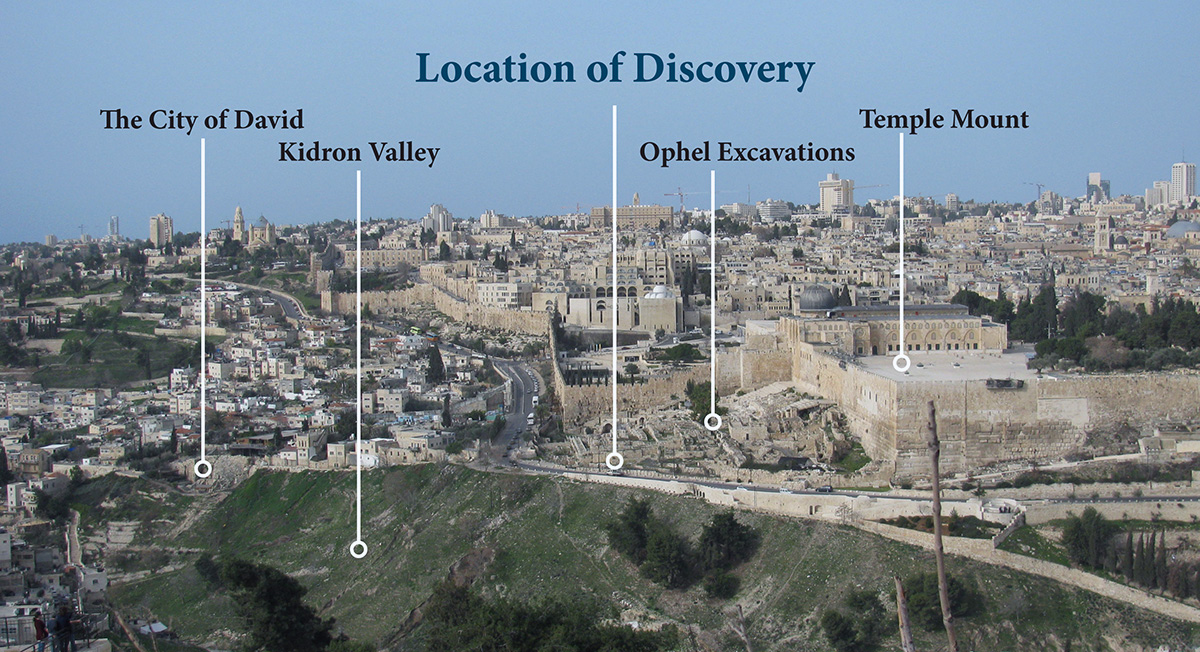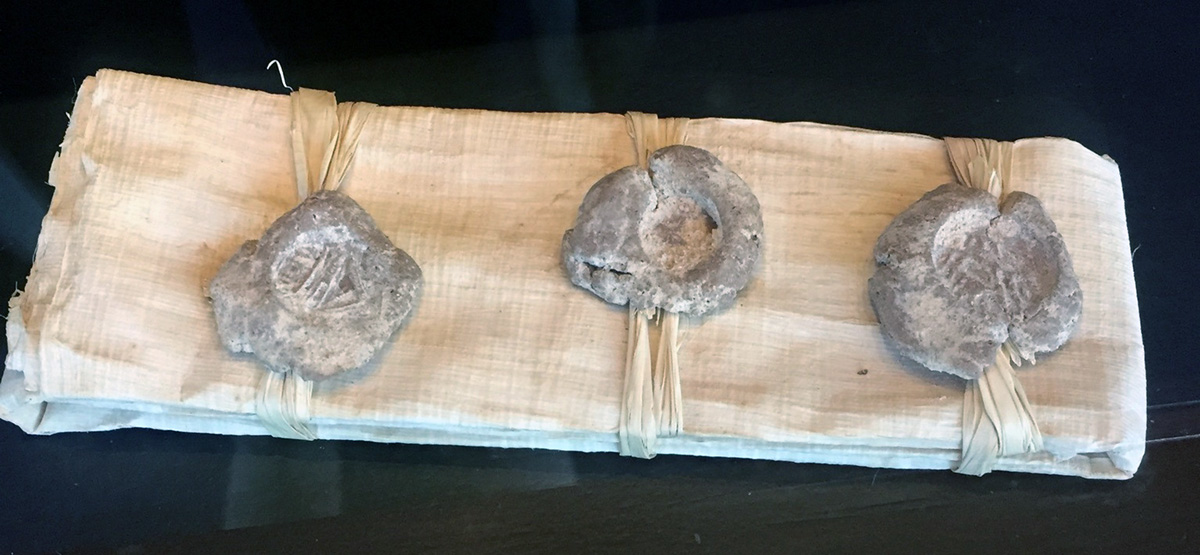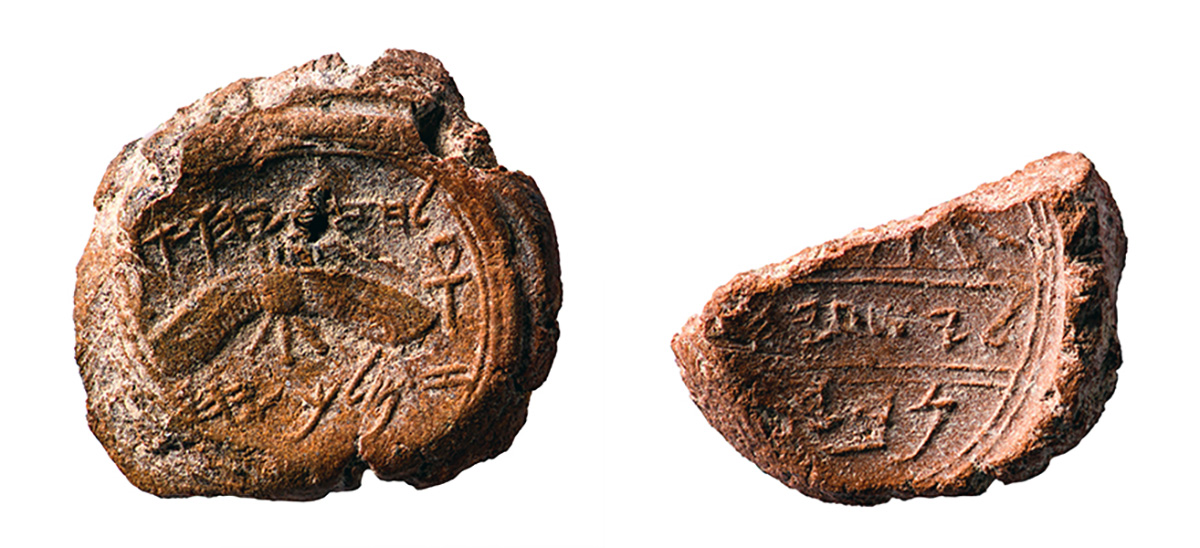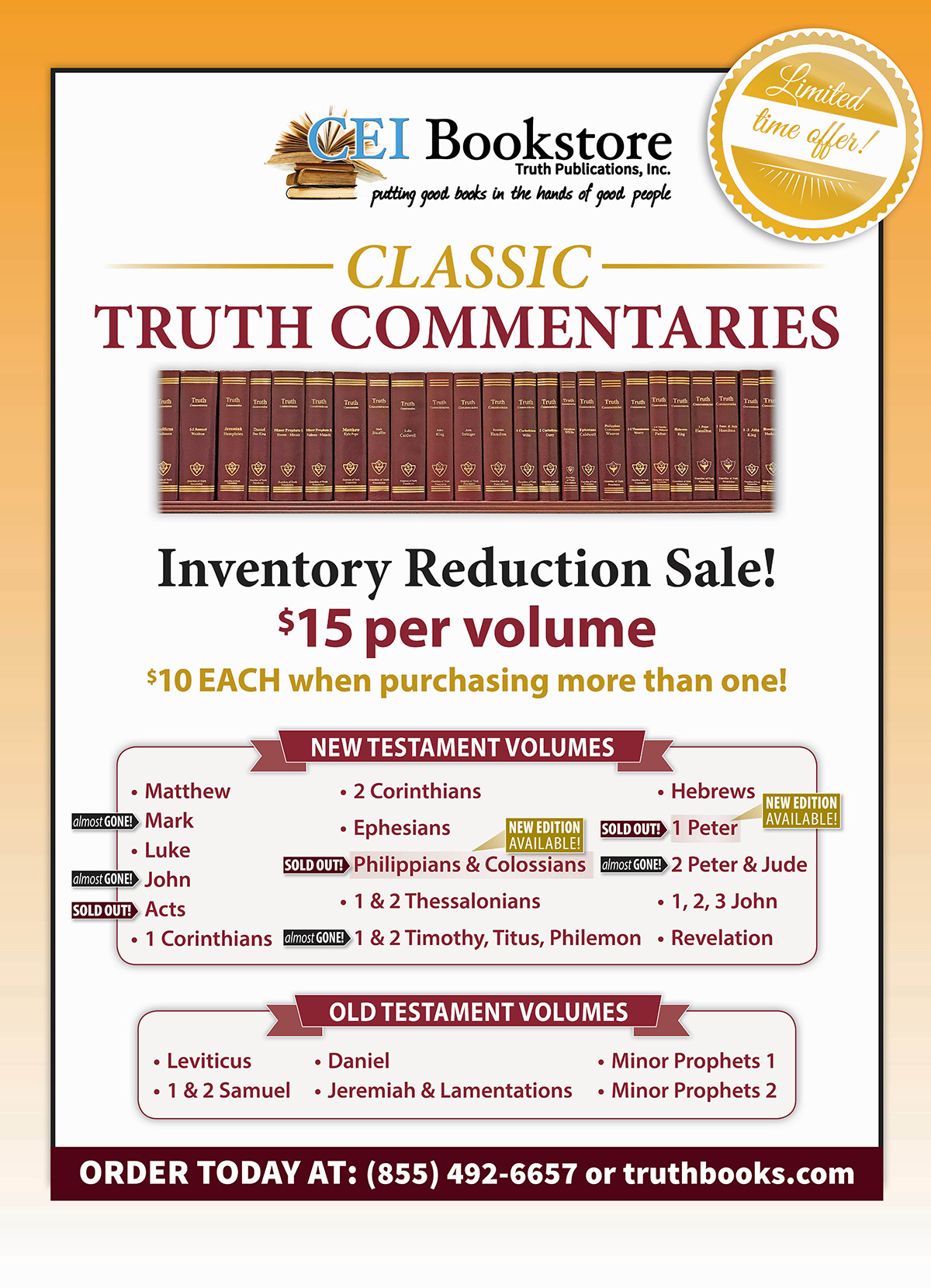

by Kyle Pope
Synopsis: 2018 witnessed significant archaeological finds that further confirm the life of two important figures in biblical history. While the Bible needs no confirmation, such discoveries reinforce our confidence in the reliability of Sacred Scripture.
Around 702 BC, Hezekiah, the faithful king of Judah, learned some disturbing news. Scripture records, "In those days Hezekiah was sick and near death. And Isaiah the prophet, the son of Amoz, went to him and said to him, 'Thus says the LORD: "Set your house in order, for you shall die, and not live"'" (2 Kings 20:1, NKJV). Imagine learning that you were about to die. How would you react? Isaiah was one who could be trusted. He had faithfully prophesied during the time of Hezekiah's father, grandfather, and great-grandfather (Isa. 1:1). During Hezekiah's reign, Isaiah had revealed to him God's deliverance from the Assyrian army that threatened Jerusalem (2 Kings 19:1-7). Through Isaiah, God revealed His answer to Hezekiah's prayer during this perilous time (2 Kings 19:15-34), and God destroyed the Assyrian army, as Isaiah had prophesied (2 Kings 20:35). Even so, his prophesy was not of deliverance, but death—the death of Hezekiah.
Scripture tells us Hezekiah's reaction. It records, "Then he turned his face toward the wall, and prayed to the LORD, saying, 'Remember now, O LORD, I pray, how I have walked before You in truth and with a loyal heart, and have done what was good in Your sight.' And Hezekiah wept bitterly" (2 Kings 20:2-3). Like Hezekiah, we too are mortal. Our lives will not last forever on this earth. The Hebrew writer tells us, "And as it is appointed for men to die once, but after this the judgment, so Christ was offered once to bear the sins of many. To those who eagerly wait for Him, He will appear a second time, apart from sin, for salvation" (Heb. 9:27-28). God may not tell us when our life will end, but it is an inescapable reality.
Hezekiah's reaction is not surprising to us. He wept and wept "bitterly" (or literally "a great weeping," Young's Literal Translation). Like Hezekiah, the inevitability of death can lead us to sadness, but God is not blind to this. Jesus wept at the death of Lazarus (John 11:35). He understands the pain of death. The Hebrew writer tells us that Jesus' death, sharing in our flesh and blood, destroyed the devil's "power of death" (Heb. 2:14), releasing human beings who live in bondage to "the fear of death" (Heb. 2:15).
Hezekiah's reaction is impressive: As he had done throughout his life, when confronted with danger, his first reaction was prayer. In Christ, we are to "pray without ceasing" (1 Thess. 5:17). Paul told the Philippians, "Be anxious for nothing, but in everything by prayer and supplication, with thanksgiving, let your requests be made known to God; and the peace of God, which surpasses all understanding, will guard your hearts and minds through Christ Jesus" (Phil. 4:6-7). This doesn't mean that every anxiety will be removed. Paul prayed three times for his "thorn in the flesh" and was told "No" (2 Cor. 12:7-9). Prayer for the Christian, like prayer for Hezekiah, demonstrates a humble recognition of God's dominion in our lives. Peter urged Christians, "humble yourselves under the mighty hand of God that He may exalt you in due time, casting all your care upon Him, for He cares for you" (1 Pet. 5:6-7).
As we consider this remarkable encounter, it is important for us to recognize that these men were not mythical characters from Star Wars, Harry Potter, or Lord of the Rings, but real men who lived on this earth centuries ago. In 2009, in excavations conducted by respected archaeologist Eilat Mazar just south of the Temple Mount in Jerusalem in the area known as the "Ophel," two small clay artifacts were discovered. They were two bullae, the impressions made by a seal pressed into soft clay. Bullae were used to seal documents and verify the author or sender. One of the bullae was quickly identified. It read, "Belonging to Hezekiah, [son of] Ahaz, king of Judah." For several years, other examples of Hezekiah bullae had circulated throughout the antiquities market, but this was the first to be found in a controlled, archaeological excavation.1 It was found in a pile of debris against a wall near an area believed to have been used by the royal bakers up through the time of the Babylonian destruction of the city in 586 BC. It was decorated with a winged sun-disk, believed by some to represent God's care over His people. Psalm 84:11 declares, "For the LORD God is a sun and shield." Psalm 91:4 promises, "He shall cover you with His feathers, and under His wings you shall take refuge; His truth shall be your shield and buckler."
About ten feet away, they discovered another bulla whose significance would not be recognized for several years. The upper left portion of it was damaged, and the lower left was probably obscured when it was first impressed by its owner's thumbprint—which is still visible. What remains is remarkable! The middle section reads in Hebrew, "leyesha'yah[u]," meaning "belonging to Isaiah." Now many people probably bore the name Isaiah, but the lower section has the three Hebrew letters nvy. The portion obscured by the thumbprint has room for the Hebrew letter aleph. If this was the full reading, it represents the Hebrew word nvy', meaning "prophet." That would make the full reading "belonging to Isaiah, [the] prophet." Not all accept this conclusion. Some take it as a personal name of some other Isaiah, but to find the names of Hezekiah and Isaiah in the same proximity, within the same archaeological context is compelling. The Bible uses these names together sixteen times (2 Kings 19:5, 20; 20:1, 8, 12, 14, 16, 19; 2 Chron. 32:20, 32; Isa. 37:5, 21; 38:1; 39:3, 5, 8). In her article reporting on this in the spring of 2018, Mazar wrote:
…the close relationship between Isaiah and King Hezekiah, as described in the Bible, and the fact the bulla was found next to one bearing the name of Hezekiah seem to leave open the possibility that, despite the difficulties presented by the bulla's damaged area, this may have been a seal impression of Isaiah the prophet, adviser to King Hezekiah.2
In November 2018, my wife and I had the thrill of seeing both of these artifacts in an exhibit at the Armstrong Auditorium in Edmond, Oklahoma. It was moving to consider that these small bits of clay may well bear witness to these great men of faith.
As Hezekiah prayed, it happened, before Isaiah had gone out into the middle court, that the word of the LORD came to him, saying,"Return and tell Hezekiah the leader of My people, 'Thus says the LORD, the God of David your father: "I have heard your prayer, I have seen your tears; surely I will heal you. On the third day, you shall go up to the house of the LORD. And I will add to your days fifteen years. I will deliver you and this city from the hand of the king of Assyria; and I will defend this city for My own sake, and for the sake of My servant David"'" (2 Kings 20:4-6). God may not extend our lives here on earth, but like Hezekiah, by His mercy, He extends life in the age to come to those who serve Him faithfully. Jesus declared, "I have come that they may have life and that they may have it more abundantly" (John 10:10b). The apostle John ended his gospel explaining that his account was "written that you may believe that Jesus is the Christ, the Son of God, and that believing you may have life in His name" (John 20:31). The extension of Hezekiah's life was merely a foretaste of the Power that would ultimately conquer death and offer to all souls the way to eternal life.
What a comfort it must have been to Hezekiah to hear God's promise "I will deliver you" and "I will defend this city." We too face many dangers, obstacles, and threats. Like Hezekiah, in Christ, we have the promise that God will deliver us from all our foes, whether persecution, temptation, enemies, or death. Paul wrote that in temptation God, "will not allow you to be tempted beyond what you are able, but with the temptation will also make the way of escape, that you may be able to bear it" (1 Cor. 10:13). Though we will face hardship, illness, and suffering (John 16:33), in Christ we have the promise that God hears us and will answer in accordance with His will (1 John 5:14). Even in those things that we must suffer, Christians are "more than conquerors through Him who loved us" (Rom. 8:37). Our victory is found in obedience to the gospel of Jesus Christ, by which God delivers us from all dangers (Rom. 8:38-39). Like this ancient prophet and king, we too serve a real God of real promises and real deliverance.
1 See Deutsch, Robert. "Lasting Impressions," Biblical Archaeology Review 28.4 (July/August 2002): 42-46, 49-51, 60-61.
2 Mazar, Eilat. "Is This the Prophet Isaiah's Signature?" Biblical Archaeology Review 44.2 (May/June 2018): 64-73, 92.

Image 1: Location of discovery in the old city of Jerusalem. Photo by Kyle Pope

Image 2: Replica of bullae used to seal a document. Photo by Toni Pope

Image 3: Hezekiah Bulla (left) and Isaiah Bulla (right). Courtesy of Watch Jerusalem
Author-Bio: Kyle preaches for the Olsen Park Church of Christ in Amarillo, TX. He has written several books published by Truth Publications including How We Got the Bible. The church website is olsenpark.com. He can be reached at kmpope@att.net.
